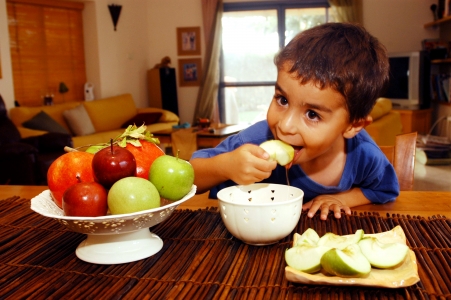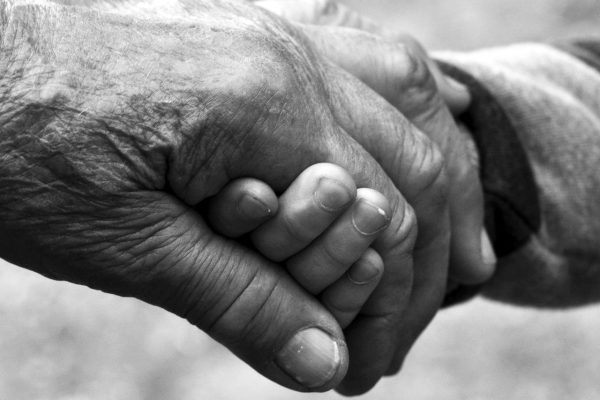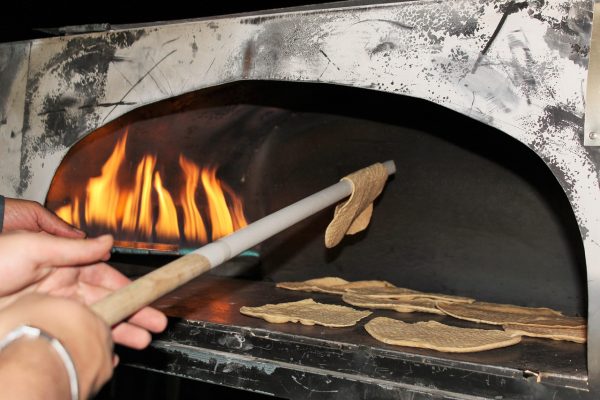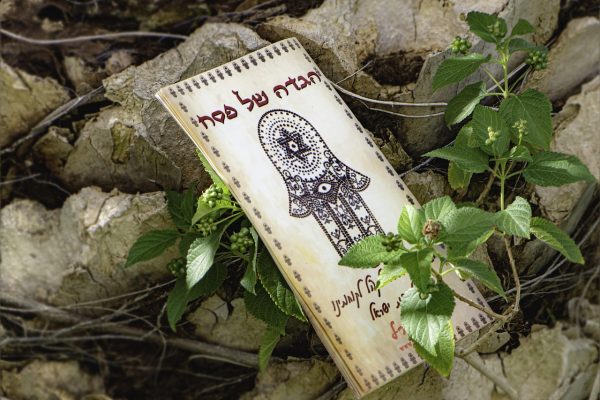There is a traditional connection between Sukkot and Tu B’shvat: saving the Sukkot etrog for jam on Tu B’shvat. It occurred to me that a similar food connection could be made between Passover and Rosh Hashanah (Yom Teruah).
Matzah symbolizes the bread of affliction. On Rosh Hashanah, for Tashlikh, we cast bread crumbs, our “sins,” into the living water. I connect the two by saving some matzah (usually from the afikomen) from Passover to toss into the water for Tashlich. My errors and missing the mark could be seen as an affliction of the soul. This way I rid myself of these afflictions using the bread of affliction.
Going the other way, I save an apple from Rosh Hashanah and make haroset of it for Passover. I use the sweetness of the new year for the sweetness of the freedom from slavery (this does require a freezer).
And the circle is complete!













